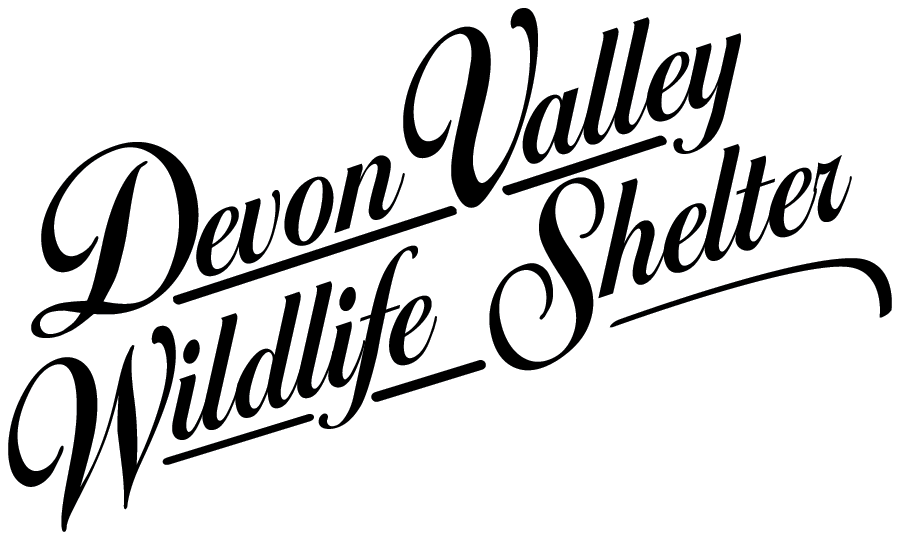I’ve Found an Animal – What Should I Do?
Help us rescue and care for wildlife—your donation makes a difference!
At Devon Valley Wildlife Shelter, we are dedicated to helping injured, sick, and orphaned wildlife. If you come across an animal in distress, acting quickly and appropriately can make all the difference. Here’s what you need to do:

Assess the Situation
- Observe from a Distance: Before approaching, take a moment to assess the animal. Some species, especially young ones, may appear abandoned but are actually being cared for by their parents nearby.
- Look for Signs of Injury or Distress: Bleeding, limping, difficulty breathing, or being immobile are clear indicators that help is needed.
- Consider the Surroundings: If the animal is in immediate danger (e.g., near a busy road, attacked by a predator, or exposed to extreme weather), intervention is crucial.

Ensure Your Safety
- Never put yourself at risk. Some animals can be dangerous when frightened or in pain.
- Use gloves or a towel when handling wildlife to prevent injury to both yourself and the animal.
- Avoid direct contact with bats, flying foxes, and venomous species—these animals should only be handled by trained rescuers.

Secure the Animal
- Small mammals and birds: Gently place them in a well-ventilated, secure box lined with a soft cloth. Keep the box in a quiet, dark place.
- Large or injured animals: Do not attempt to capture them unless absolutely necessary. Instead, call for assistance.
- Orphaned joeys: If a kangaroo, wombat, or possum joey is found near a deceased mother, wrap it in a soft cloth and keep it warm.

Keep the animal calm
- Minimize noise and handling—stress can worsen the animal’s condition.
- Do not feed or give water unless advised by a wildlife carer. Incorrect feeding can cause serious harm.
- Keep warm but not overheated—a warm (not hot) water bottle wrapped in a towel can help maintain body temperature.

Contact a Wildlife Rescuer Immediately
For assistance, please call Marnie Telling at 0407 297 546. We will provide guidance and arrange for transport or further care as needed.
Special Cases
- Birds hitting windows: If the bird is stunned, place it in a dark, quiet box for an hour. If it recovers, release it in a safe area.
- Possums or koalas on the ground: These animals should not be on the ground for extended periods. Contact us for advice.
- Tangled or trapped animals: Do not attempt to cut or untangle an animal yourself—this can cause further harm. Call for professional help.
When not to Intervene
- Fledgling birds with feathers often spend time on the ground learning to fly. Unless injured, leave them be and watch for parental care.
- Baby animals seemingly alone may have parents nearby. Observe first before deciding they need help.
Support Wildlife Rescue
Devon Valley Wildlife Shelter is a volunteer-run organization. If you’d like to support our work, consider donating, volunteering, or spreading awareness.
By acting quickly and correctly, you can give our wildlife the best chance of survival. Thank you for caring!
